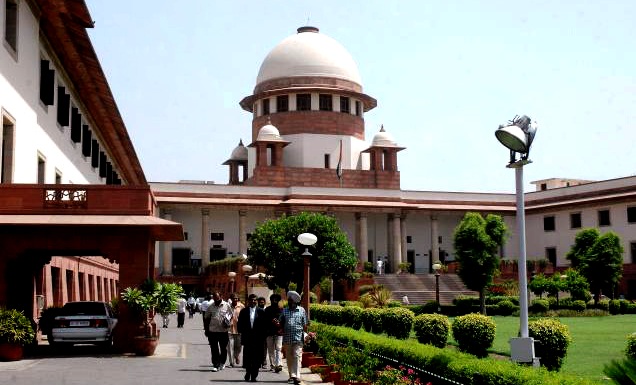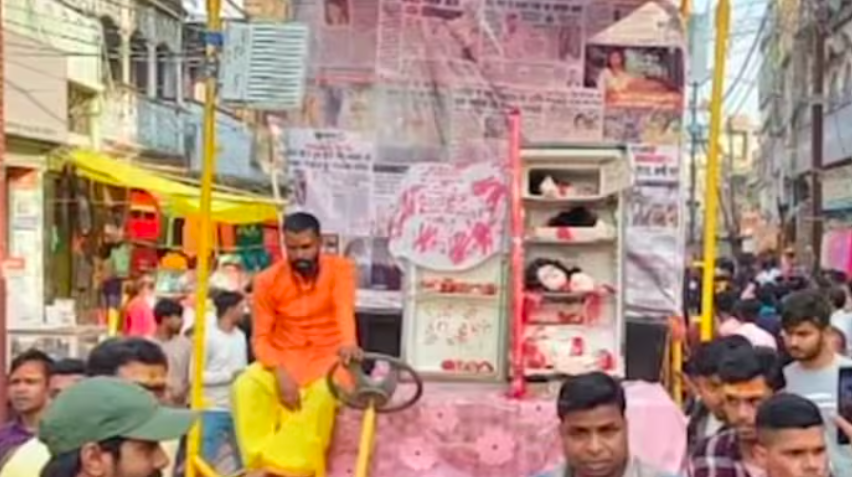BeyondHeadlines News Desk
In what is surely a landmark judgment, a three-judge bench of the Supreme Court of India has commuted the death sentence of 15 persons, including one female, to life sentence. With this judgment, the real and repugnant possibility of 15 executions in the near future has been allayed. Jamia Teachers’ Solidarity Association welcomes the Supreme Court judgment (Shatrughan Chauan & Anr vs Union of India and Ors [W.P.(Criminal) No. 55 of 2013 decided on 21 January, 2014), which has held that inordinate delay in deciding mercy petitions are fair ground for commuting capital punishment to life sentence. JTSA salutes the persistent efforts of lawyers Yug Mohit Chaudhri, Sidharth Sharma and all other lawyers who appeared in the case, as well as groups like Peoples’ Union for Democratic Rights (PUDR) and Commonwealth Human Rights Initiative (CHRI) who were petitioners and interveners in the case.
The court has held that “undue, inordinate and unreasonable delay in execution of death sentence does certainly attribute to torture which indeed is in violation of Article 21 and thereby entails as the ground for commutation of sentence.” Significantly, the SC has also overruled the ASG’s arguments that the those charged under Terror laws (such as Devender Pal Singh Bhullar under TADA) could not be the recipient of the Court’s sympathy even on the ground of delay in disposal of mercy petition. It instead averred that it was not the gravity of crime or its consequences, but the delay alone, which could be a relevant factor in deciding such petitions in Article 32.
To quote the SC itself, “Mercy jurisprudence is a part of evolving standard of decency, which is the hallmark of the society”. While certainly this judgement will be a milestone in this evolution, the real victory will be the abolition of the capital punishment.
“Remember”, says the SC, “retribution has no Constitutional value in our largest democratic country.” To this one may add that the maintenance of an apparatus of execution should have no place in a democracy either.
Reproduced here is the summary of the Court’s guidelines prepared by Venkatesh Nayak of CHRI:
Summary of the Court’s Guidelines:
1) Death row prisoners may not be kept in solitary confinement during the period of pendency of their clemency petitions. This arises out of the fundamental right to life protected under Article 21 of the Constitution;
2) Prisoners sentenced to death have the right to legal aid for the purpose of filing appeals against the sentence and also for submitting clemency petitions. This also flows from Article 21;
3) Prison authorities must supply copies of all relevant court papers to prisoners sentenced to death within a week of the sentencing to enable them to file appeals or clemency petitions. This right also flows from Article 21;
4) The Union Ministry of Home Affairs has a duty to ensure that all clemency petitions addressed to the President of India are processed forthwith and submitted along with all supportive documents and also send reminders to the President’s office in case of delays in disposing the petitions;
5) Death row petitioners are entitled to receive a copy of the rejection order from the office of the Governor or the President whichever the case may be;
6) Notice of a minimum period of 14 days must be given prior to execution of the death sentence after the mercy petition is rejected. Readers will remember that two prisoners were executed in undue haste recently soon after their mercy petitions were rejected. Unfortunately, the Apex Court has given only psychological reasons for giving this notice. Legally, as the decision of rejection of a clemency petition by the President or the Governor is amenable to judicial review on limited grounds of political bias or lack of due application of mind, the notice period must be adequately long to allow the prisoner on death row to mount a challenge to the decirion of rejection in the appropriate court;
7) The mental health condition of prisoners on death row must be evaluated on a regular basis. Even if a clemency petition is rejected the jail authorities must satisfy themselves about the mental physical condition of the death row convict. If the Jail Superintendent finds the prisoner unfit the execution must be stopped and the prisoner must be produced before a medical Board for examination;
8) Families of prisoners whose clemency petitions are rejected must be permitted to meet their families and friends before the execution. Readers will remember that in at least one case last year the prisoner was executed hastily without permitting a meeting with his family members and friends.
9) As hanging as a method of execution is not fool proof and may cause immense pain and suffering to the prisoner being hanged, post mortem of all executed prisoner is now made compulsory. Such PM reports will indicate whether the prisoner died instantly due to hanging or died slowly due to strangulation.









